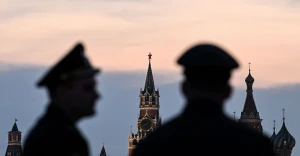
1,000 days of war: Heaviest losses, key victories, and what lies ahead for Ukrainians
A heroic and tragic date at the same time - 1,000 days of Russia's full-scale invasion, a time of fierce and courageous struggle against the invaders
Content
1. Painful losses
2. Significant achievements and victories
3. What does the future hold for Ukrainians?
Ukraine marks the tragic yet heroic date of November 19 – 1,000 days since the start of Russia's full-scale invasion. This period has been a true test for every Ukrainian, forcing a rethinking of values, overcoming fear, and uniting for victory.
These 1,000 days are a time when every Ukrainian, regardless of age, profession, or place of residence, has become an integral part of the struggle for independence and dignity. This period of unequal confrontation, where the Russian outnumbers us and has greater resources, has failed to overcome our resilience, faith, and determination to fight until victory.
On the occasion of 1,000 days of war in Ukraine, on November 19, the European Parliament will hold an extraordinary plenary session, which will include a special address by the President of Ukraine, Volodymyr Zelensky. This was announced by the President of the European Parliament, Roberta Metsola, as reported by Radio Svoboda.
The world has recognized Russia as an aggressor, sowing terror and chaos, and responded with sanctions and isolation. In contrast, Ukraine has become an example of unwavering spirit, uniting countries that support its quest for freedom. Our struggle embodies global values: the triumph of light over darkness, democracy over tyranny, and humanity over barbarism.
Painful losses
Thousands of lives of civilians and soldiers have been lost due to Russia's aggression. Each death is an indescribable pain and tragedy, leaving scars in the hearts of loved ones and the nation as a whole. The war spares no region or settlement, leaving behind ruins and rivers of tears.
In February 2024, the President of Ukraine publicly addressed the losses among Ukrainian defenders during a press conference following the Ukraine.Year 2024 forum. According to his statement, as of February 25, the Ukrainian army had lost about 31,000 soldiers. At the same time, Russian losses were estimated to be around 180,000 people (with casualties and wounded reaching up to 500,000).
However, in September 2024, the American publication *Wall Street Journal* released a report stating that the number of Ukrainian military casualties had reached 80,000, with another 400,000 injured. As for Russian losses, estimates vary: according to some sources, 200,000 occupiers were killed, with around 400,000 wounded. According to the General Staff of the Ukrainian Armed Forces, as of today, Russian forces have lost over 717,000 military personnel.
However, it is impossible to determine the real number of casualties and wounded today. Both Ukraine and Russia do not disclose full data on their losses, partly for security reasons and to counteract potential manipulations.
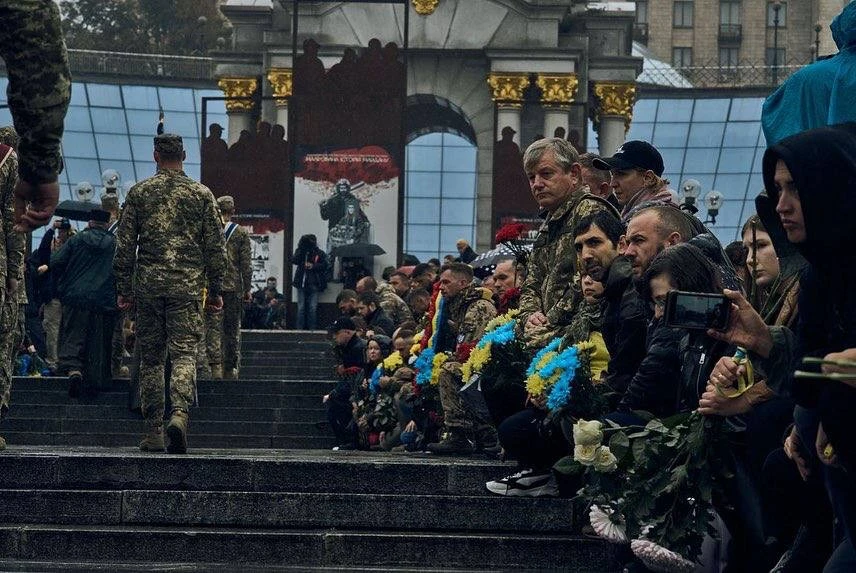
We all remember how we bid farewell to Dmytro Kotsiubailo, known by his call sign "Da Vinci," who became a symbol of resilience, and Oleksandr Matsievskyi, whose cry of "Glory to Ukraine" in the face of death embodied our strength. We also remember pilot Valentyn Korenchuk, known as "Bdzholiar," famous for his skill and dedication to the sky. Unfortunately, with each passing day of the war, such stories continue to multiply.
Every fallen defender is bid farewell by Ukrainians on their knees. It is difficult to list all the heroes, but in their honor, streets and squares are renamed, monuments are erected, and their names are immortalized in works of art. Let us remember every soldier; their sacrifice will never be forgotten, for they fought for our present and our future.
A person is the most valuable treasure of our nation. Many civilians have also gone through a difficult journey. Since August 2024 alone, over 170,000 people have been forced to leave their homes in eastern Ukraine due to active combat. Some of them have found safety in other regions of Ukraine, where nearly 4 million internally displaced persons are already residing, while others have joined the 6.7 million refugees who have found shelter abroad.
Since the beginning of 2024, nearly 400,000 Ukrainians have crossed the EU borders in search of protection from explosions and danger. These figures are not just statistics; behind them lie the fates, stories, and dreams of those who were forced to leave their homeland. Currently, around 25-27 million people live in the controlled part of our country.
Infrastructure destruction
The invaders are deliberately destroying critical infrastructure: schools, hospitals, residential buildings, and power plants. The heating season of 2022–2023 became especially challenging due to massive strikes on the energy system.
In 2023, Ukraine's energy sector suffered significant losses due to targeted attacks by Russian occupiers. A total of 271 strikes were recorded on generation facilities, leading to widespread destruction and damage. As Prime Minister Denys Shmyhal stated, there was not a single thermal power station or hydroelectric power station in Ukraine that did not suffer from Russian shelling during the winter. Several settlements were left without electricity and water supply for several days.
Over the course of several years of war, the scale of the damage has been so vast that it has proven impossible to restore the full capacity of the energy system before the start of the new heating season.
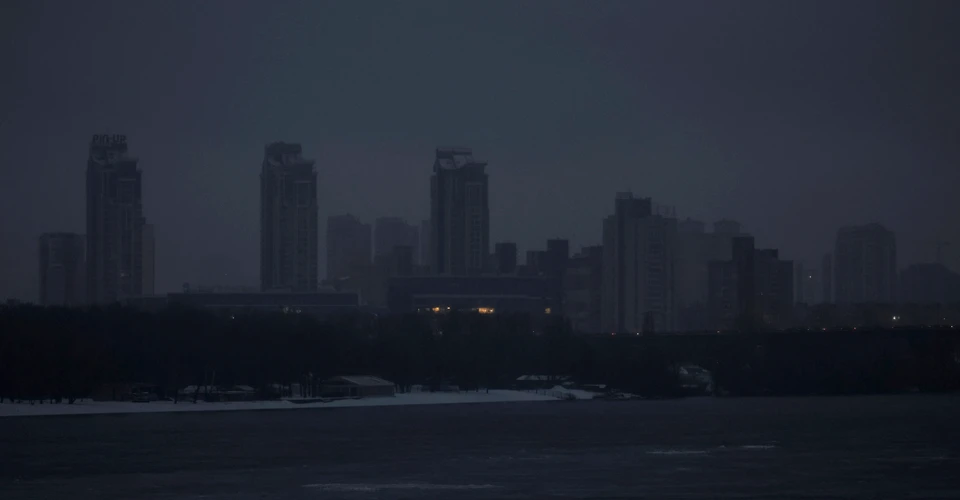
Ukraine continued to suffer significant losses in the energy sector in 2024, with around 65% of power generation capacity destroyed due to Russia's heavy shelling. The threat remains high as attacks persist, complicating efforts to restore the energy system and ensure stability with the onset of colder months. Even if no further damage occurs, experts predict that during severe frosts, Ukrainian homes could face power outages lasting at least four hours a day.
Energy workers and the government continue efforts to mitigate the impact on the population, repairing damaged facilities and introducing new technological models. However, these processes require substantial resources and time. Today, energy terrorism serves as another psychological tactic of the aggressor, persistently attempting to destabilize the nation's critical systems and deepen the humanitarian crisis.
Environmental impact
The war has inflicted enormous environmental damage on Ukraine, with long-term consequences, some of which are still difficult to fully assess.
Due to military actions, thousands of hectares of natural areas have been reduced to scorched forests and fields. This devastation not only destroys wildlife habitats but also increases CO2 levels in the atmosphere. Mines scattered across fields, forests, and rivers have turned vast areas into ecological disaster zones, rendering them hazardous for human use and the environment. Tragically, Ukraine is now the most heavily mined country in the world. As of July 1, 2024, over 144,000 square kilometers of Ukraine are considered potentially dangerous due to explosive remnants of war, according to the Ministry of Internal Affairs of Ukraine.
Russian forces have occupied and devastated dozens of national parks and nature reserves. The Kinburn Spit Regional Landscape Park, renowned for its unique flora and fauna, was entirely burned. Similarly, in the Askania-Nova reserve, the invaders displayed blatant disregard for the environment by destroying plants and removing animals from their natural habitats.
The world witnessed a true ecocide and technological disaster on the night of June 6, 2023, when Russian forces detonated the engine room of the Kakhovka Hydroelectric Power Plant from within, completely destroying the facility. According to Ukrhydroenergo, the plant is beyond repair due to the extent of the damage. This act of aggression inflicted nearly $14 billion in damages on Ukraine, as reported by the United Nations Ukraine web portal.
This strike not only caused significant damage to Ukraine's energy infrastructure but also led to the flooding of dozens of settlements, endangering civilians in both Ukrainian-controlled and occupied territories. The dam's destruction carries severe environmental consequences, including the devastation of ecosystems, the irreversible loss of endemic species, and the sweeping of debris and waste into the Black Sea.
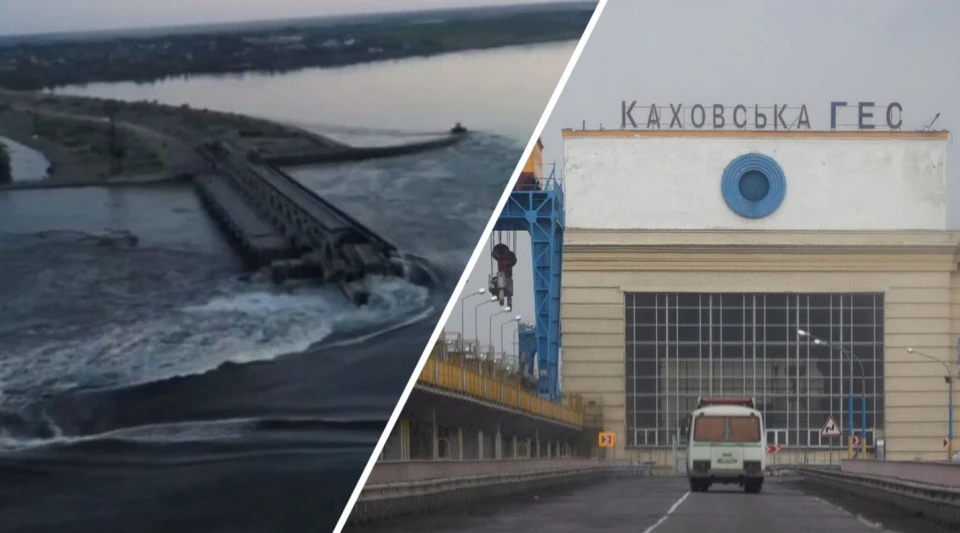
The explosion of the Kakhovka hydroelectric power station, Photo: Espreso TV collage
Significant achievements and victories
The Ukrainian army has astonished the world with its courage and professionalism. Repelling the Russian offensive on Kyiv, liberating the Kharkiv region, Kherson, and numerous other settlements are victories that will be immortalized in history books.
The battle for Kyiv, where the conditional starting point is the beginning of a full-scale invasion, lasted until about April 2022. This stage of the war was extremely important, as the invaders were confident that they would be able to capture the capital without resistance. Russian troops launched an offensive on the capital from several directions, including through Irpin, Vorzel, and Bucha, with the aim of rapidly breaking through to the center of Kyiv and seizing government buildings. The Ukrainian Armed Forces and the terrorist defense demonstrated extraordinary resilience and determination, thwarting the aggressor's plans.
The battles for key sites, such as the "Antonov" airport in Hostomel, were particularly significant, with the aggressor's forces suffering heavy losses in their attempt to seize this strategic point. The steadfast defense of Kyiv and the coordinated actions of Ukrainian forces forced the enemy to retreat. This victory proved pivotal for the country's subsequent developments, putting the Russian command in a difficult position.
The Kharkiv strategic offensive can be called one of the most significant and striking events in the context of the Russian-Ukrainian war. Thanks to strategic skill and precise military actions, Ukrainian forces were able to deceive the enemy, creating the impression that the offensive would take place in a different direction. This maneuver allowed Ukrainian troops not only to gain a strategic advantage, but also to defeat demoralized Russian units that retreated to the Ukrainian state border.
In September, the Ukrainian Defense Forces liberated important settlements from the enemy, including Bohorodichne and Sviatohirsk in the northern part of Donetsk region. As a result of the operation, more than 300 villages and towns were liberated, and 3,800 square kilometers of territory, home to more than 150,000 Ukrainians, were cleared. This small victory was an important step in the context of liberating the occupied territories and strengthening Ukraine's positions in the east.
The operation to liberate the right bank of the Kherson region was an important milestone in Ukraine's struggle. Russian troops had been strengthening their positions in this area for months, including by creating powerful fortifications: concrete shelters, trenches, and well-organized firing points. However, thanks to the skill of Ukrainian commanders and well-planned tactical maneuvers, the Ukrainian Armed Forces were able to conduct a series of effective operations.
On November 11, 2022, Kherson was liberated. Thousands of citizens greeted their liberators with Ukrainian flags, a powerful symbol of a major victory and a beacon of hope for all who endured the occupation.
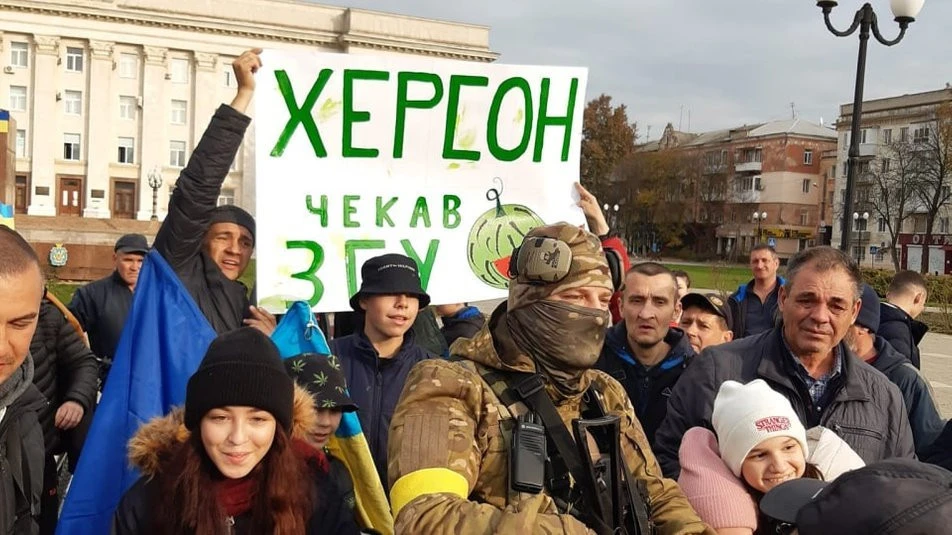
Kherson residents with Ukrainian soldiers on Freedom Square, November 11, 2022: Ihor Tsurkan/Facebook
Another piece of news that seemed impossible at the start of Russia's full-scale invasion was that Ukrainians would dare to bring military operations to enemy territory. The Kursk offensive became one of the most significant in the history of the war, demonstrating the courage and strategic planning of the Defense Forces. The operation began around August 6, 2022, when Russia claimed that Ukrainian forces had broken through the border and entered the Kursk region. However, this "breakthrough" was not the endpoint; Ukrainian units continued to effectively advance deeper into the territory and secure positions there.
By the end of August, the Ukrainian Armed Forces had achieved significant results, including taking control of 100 settlements, covering approximately 1,294 square kilometers of territory, and capturing nearly 600 Russian soldiers. This offensive operation provided Ukraine with a strategic advantage and significantly boosted the morale of the troops on the front lines.
In addition, everyone remembers the fierce battles and the liberation of Snake Island, the swift destruction of the flagship of the Russian Black Sea Fleet - the cruiser Moskva, the meticulously planned return of the Boiko Towers under Ukraine's control, and more. In reality, our military is carrying out crucial tasks every day, steadily moving us closer to victory. Many missions and operations remain classified today, and their details will only be revealed once the war is over.
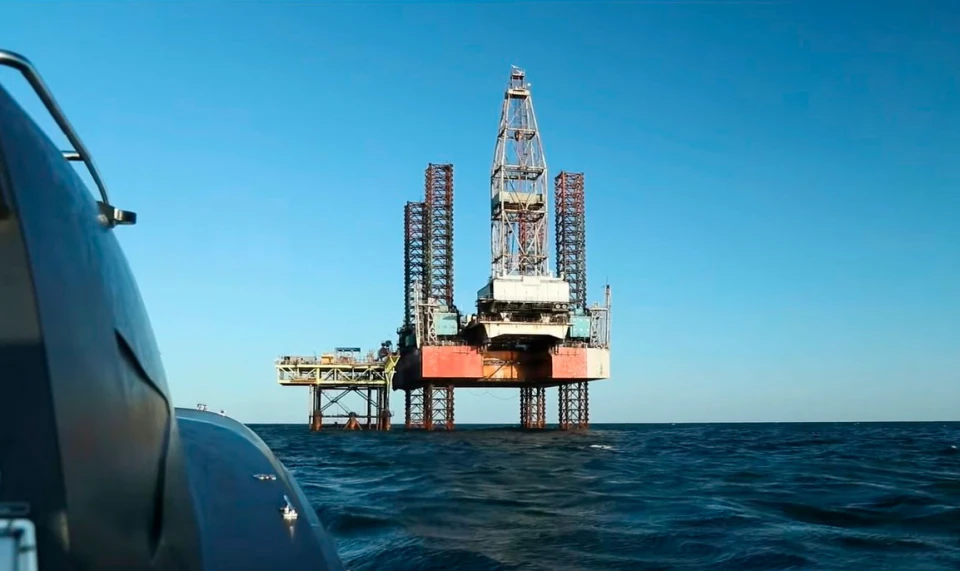
Boiko Towers, Photo: Main Intelligence Directorate
It is important to highlight that Ukrainians have shown a unique example of unity: volunteers, medics, entrepreneurs, and ordinary citizens have joined the resistance. Everyone is contributing to the victory in their own way. If the Russians tried to divide our society, we can confidently say that the war has been a catalyst for the rise of Ukrainian culture.
Furthermore, the global community has united around Ukraine, providing financial, military, and humanitarian support. The supply of modern weapons, sanctions against Russia, and political backing have become crucial for our country in this war.
What does the future hold for Ukrainians?
The greatest dream of all Ukrainians is victory in the war and the return of all military personnel and civilians to peaceful life. Experts suggest that the war in Ukraine will likely continue into 2025. In the coming months, a decrease in the intensity of Russian offensives in the Donbas is expected, though this does not signify the end of hostilities. Depending on developments, a number of scenarios may unfold. Among the possibilities are further counteroffensive actions by the Armed Forces of Ukraine, as well as political changes that could impact the course of the war. Specifically, discussions about potential negotiations with Russia are on the table, as the international political situation will also play a significant role.
In recent months, the information space has been full of possible scenarios for the development of the war in connection with the election of a new US president. Donald Trump has repeatedly emphasized that he can stop the war in Ukraine “in one day.” Some experts say that Trump may initiate a peace treaty between Ukraine and Russia. According to Mark Voyger, former Special Advisor for Russian and Eurasian Affairs to the Commander-in-Chief of the U.S. Army in Europe, such an agreement could be reached “not for the sake of justice, not for the sake of restoring Ukraine's sovereignty and punishing Russian aggression,” but by putting increased pressure on Kyiv.
Indeed, there are differing views on the potential outcome of the war. Military and political analyst from the "Information Resistance" group, Oleksandr Kovalenko, has suggested that Putin is unlikely to agree to Donald Trump's proposal of freezing the conflict at its current frontline position. This is because Russia claims territories that are still under Ukrainian control, and such a plan might provoke internal criticism within Russia. Kovalenko argues that under these circumstances, Trump would be forced to increase arms supplies to Ukraine, potentially even more than during the Biden administration. This highlights the complex geopolitical dynamics at play and the evolving role of international actors in shaping the future of the conflict.
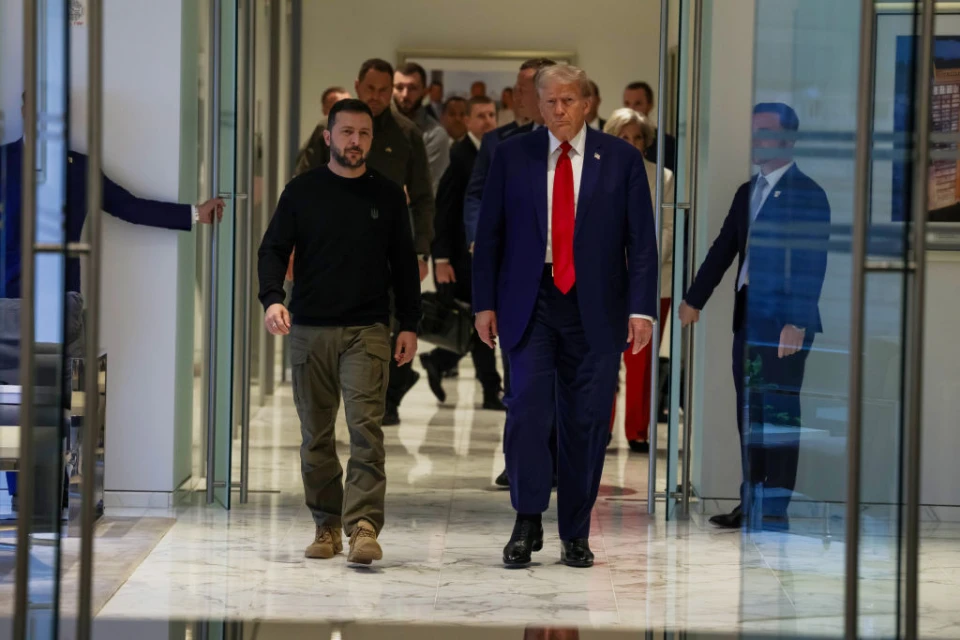
Volodymyr Zelenskyy and Donald Trump, Photo: Getty Images
There are many interpretations and scenarios for the development of events, and probably no one can predict exactly what will happen. However, every Ukrainian believes that Russia will be held accountable for its crimes: an international tribunal, reparations, and punishment for the guilty. This is not only a matter of justice, but also of security.
Today, 1,000 days of war have shown the resilience of Ukrainians, who believe in their victory despite incredible hardships. Many challenges still lie ahead, but a united nation, supported by the civilized world, will be able to overcome all obstacles. Glory to Ukraine! Glory to the heroes!
- News





